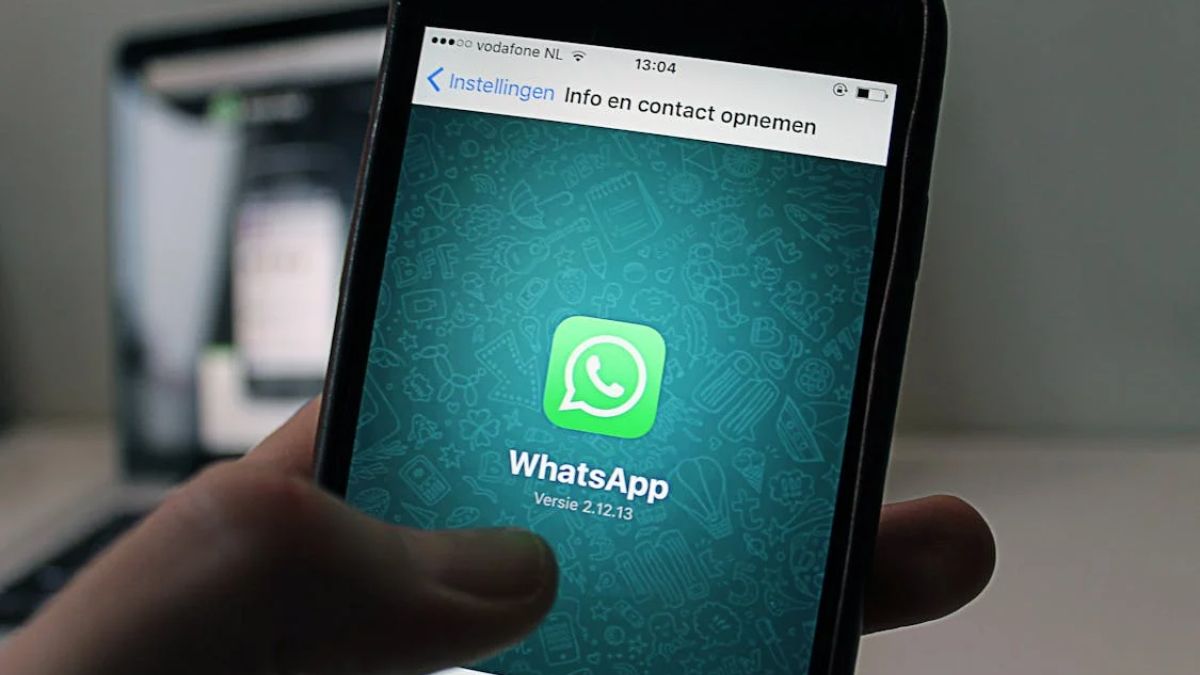Affiliate marketing continues to be one of the most effective and accessible ways to earn passive income online. As social media channels and messaging platforms evolve, marketers are constantly looking for new ways to reach their audience. One of the most underrated tools in this space is WhatsApp. With over 2 billion active users globally, this messaging app offers a unique and personal way to connect with potential buyers. In this guide, you’ll learn step-by-step how to use WhatsApp for Affiliate Marketing, even if you’re just getting started.
1. Why Choose WhatsApp for Affiliate Marketing?
Before diving into strategies, it’s important to understand why WhatsApp is a powerful platform for affiliate marketers. Unlike social networks that rely on algorithms, WhatsApp allows direct, personal communication. Messages are delivered straight to a user’s device with high open rates, often above 90%.
Here are some key benefits of using WhatsApp for affiliate marketing:
- High Engagement: People check WhatsApp multiple times a day.
- Personalized Communication: Direct chats build trust.
- Free to Use: Zero cost to send messages.
- Supports Rich Media: Share images, videos, links, and documents easily.
By leveraging these features, you can build closer relationships with your audience and improve your chances of making affiliate sales.
2. Setting Up WhatsApp for Affiliate Marketing
To begin using WhatsApp for Affiliate Marketing, you need to set up your presence professionally. Start with the WhatsApp Business app, which offers features designed for marketers and small business owners.
Steps to Set Up:
- Download WhatsApp Business from the App Store or Google Play.
- Register with a dedicated number (don’t use your personal one).
- Create a business profile:
- Add a professional profile picture.
- Include a business description and category.
- Add your email and website.
- Enable quick replies and away messages for professionalism.
WhatsApp Business allows you to label chats, create broadcast lists, and even automate greetings. These features are incredibly useful for organizing and scaling your affiliate campaigns.
3. Building Your Audience the Right Way
You can’t send affiliate links to just anyone. WhatsApp is a personal platform, so your audience must opt-in to receive messages. Sending unsolicited messages can get your number blocked.
Safe Ways to Build an Audience:
- Website Opt-In Forms: Offer a free resource in exchange for their WhatsApp number.
- Social Media Posts: Invite followers to join your WhatsApp list for exclusive deals.
- Email Campaigns: Promote your WhatsApp group or broadcast list.
- Lead Magnets: Free PDFs, cheat sheets, or guides that require WhatsApp sign-up.
Always ask for permission and provide value up front. A qualified list is more likely to convert than a large, unengaged one.
4. Content Strategy for Affiliate Marketing on WhatsApp
The key to using WhatsApp for Affiliate Marketing effectively is providing value. Don’t just drop affiliate links. Instead, aim to build trust and help solve problems.
Types of Content to Share:
- Product Reviews: Short text reviews with your honest opinion.
- How-To Guides: Explain how to use a product.
- Exclusive Deals: Limited-time offers that create urgency.
- Video Demos: Show the product in action.
- Tips and Tricks: Related to the niche of your affiliate products.
Avoid spamming. Instead, keep your content short, clear, and helpful. Include a call-to-action (CTA) and always disclose affiliate relationships when required.
5. Using Broadcast Lists and Groups
There are two main ways to send messages to multiple users on WhatsApp:
Broadcast Lists
- Send one message to many users at once.
- Each message appears as a private message.
- Only works if the recipient has saved your number.
WhatsApp Groups
- Great for community-building.
- All members can see each other’s responses.
- Can be distracting if not moderated well.
When using WhatsApp for Affiliate Marketing, broadcast lists work best for promotions, while groups work better for discussions, Q&A, or tips.
6. Compliance and Best Practices
WhatsApp has strict guidelines against spam. Violating these can get your account banned. Follow these tips:
- Always get permission before sending messages.
- Allow opt-out options in every message (e.g., “Reply STOP to unsubscribe”).
- Avoid frequent promotions; maintain a balance between content and offers.
- Disclose affiliate links clearly if required by law (especially in the U.S.).
- Use short links via a tracker (like Bitly) or affiliate dashboard.
Ethical and legal compliance builds long-term trust, which leads to more conversions.
7. Tools to Enhance WhatsApp Affiliate Marketing
To take your efforts up a notch, consider tools that help automate, track, and manage your campaigns:
- WA Web Plus: Adds extra features to WhatsApp Web like bulk messaging.
- Bitly: Shortens links and tracks clicks.
- ManyChat (for WhatsApp): Build automated sequences and chatbots.
- Canva: Design product images and promotional materials.
These tools make managing WhatsApp for Affiliate Marketing more efficient and scalable.
8. Case Studies: Success with WhatsApp Affiliate Marketing
Let’s look at a few fictional but realistic examples:
Case Study 1: Fitness Coach
Anna, a fitness influencer, built a WhatsApp broadcast list of 500 followers from her YouTube channel. She shared weekly fitness tips and product recommendations. Using affiliate links for protein powders and gear, she earned over $1,000/month within three months.
Case Study 2: Tech Blogger
Mike used his blog to invite readers to a WhatsApp group where he discussed the latest gadgets. He built trust by reviewing products in-depth. His conversion rate was over 10%, much higher than email.
These examples show how WhatsApp for Affiliate Marketing can lead to real revenue when paired with strategy and value.
9. Measuring Performance
You can’t improve what you don’t measure. Monitor key metrics to evaluate success:
- Click-Through Rates (CTR): Use trackable links.
- Conversion Rates: Track sales or sign-ups.
- Engagement: Measure replies, forwards, and reactions.
- Growth: Number of new subscribers or group members.
Use tools like Google Analytics, affiliate dashboards, or CRM integrations to make data-driven decisions.
10. Final Thoughts: Is WhatsApp Worth It?
Absolutely. For those who want a direct, cost-effective way to connect with a niche audience, WhatsApp for Affiliate Marketing offers powerful potential. It combines the intimacy of messaging with the scalability of social platforms.
To recap:
- Set up your WhatsApp Business profile.
- Build a quality opt-in list.
- Share useful content, not just promotions.
- Stay compliant and respectful.
- Use tools to automate and scale.
Affiliate marketing doesn’t require a massive audience-just a loyal one. With the right approach, WhatsApp can become a secret weapon in your affiliate arsenal.
SaaS Affiliate Partner empowers SaaS companies to accelerate growth by building high-performing affiliate partnerships. Our intelligent platform and comprehensive SaaS Tools Directory make it easy to connect with top affiliates, manage relationships, and drive sales within a seamless, results-driven ecosystem. Whether you want to list your SaaS product or find the perfect affiliate partners, we simplify the entire process to help you scale faster.
FAQs on WhatsApp for Affiliate Marketing
WhatsApp for Affiliate Marketing is the practice of using WhatsApp to promote affiliate products or services through direct messages, broadcast lists, or groups. It allows marketers to build trust and share clickable affiliate links with an engaged audience.
Beginners can use WhatsApp for Affiliate Marketing by creating a WhatsApp Business account, building an opt-in list, and sharing helpful content with affiliate links. Starting with product reviews and limited-time deals works well.
Yes, WhatsApp remains effective for affiliate marketing in 2025 due to high open rates, personal communication, and free messaging. It works best when used for value-driven content and trusted recommendations.
To grow your WhatsApp list, use website opt-in forms, social media invitations, email campaigns, and lead magnets. Always ask for permission before adding someone to your broadcast list or group.
Yes, you can send affiliate links through WhatsApp, but you must follow platform rules and legal guidelines. Always disclose affiliate relationships and avoid sending unsolicited messages.
Popular tools include WhatsApp Business, WA Web Plus, Bitly for tracking links, and ManyChat for WhatsApp automation. These tools streamline sending, tracking, and segmenting messages.
You should share product reviews, how-to guides, video demos, exclusive deals, and helpful tips. Use a conversational tone and include a clear call to action with your affiliate link.
Yes, using WhatsApp for Affiliate Marketing is legal in the United States if you follow privacy laws, get consent from recipients, and clearly disclose affiliate relationships in your messages.
Broadcast lists are ideal for sending personalized messages to multiple users, while WhatsApp groups are better for community engagement and discussions. Use both based on your campaign goals.
You can track performance by monitoring click-through rates with shortened links (like Bitly), checking affiliate dashboards for conversions, and measuring user engagement like replies and forwards.

